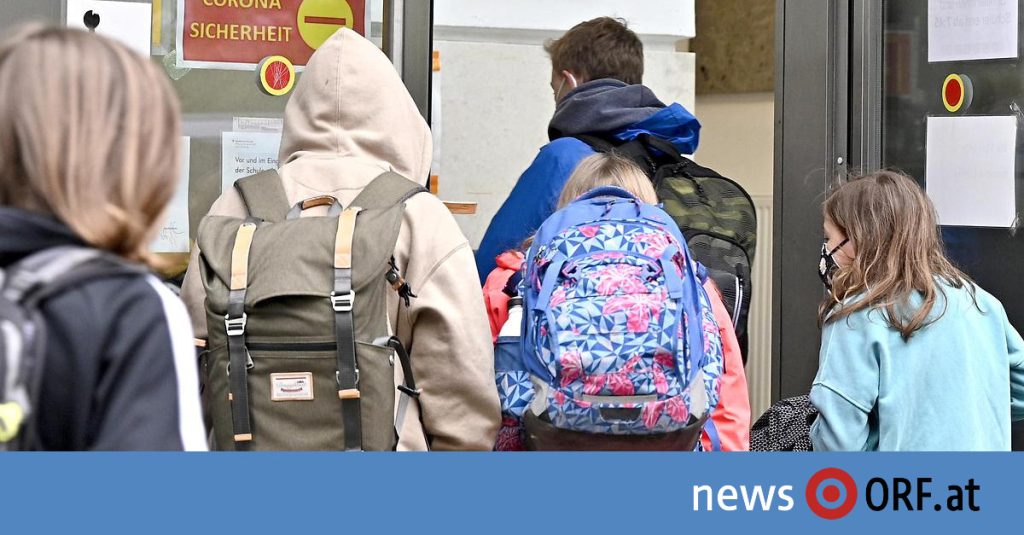In the contract currently in place, it has also committed to two tests per week in eight federal states (except Vienna) from Monday. It must come true now. After the Christmas holidays, the Ministry of Education switched to a new provider of the PCR testing program after a new tender was issued.
However, ARGE for Molecular Diagnostics had to face technical issues when evaluating outcomes, especially when mapping and assessing them in the database. According to the Ministry of Education, “inexplicably few positive cases” have been reported, and schools have received “late, incorrect and incomplete” data.
Check legal steps
Accordingly, the department has ordered a quality check by means of comparative measurements by experts, and legal actions against the consortium of companies that submitted the bids are also examined. To ensure that the school’s operations are as safe as possible, pupils in all federal states except Vienna – where the PCR test process operates – perform antigen tests daily. This is part of the school testing strategy anyway, which states three tests per week (of which at least one is a PCR test so far).
Problems with PCR tests continued on Friday in Lower Austria, for example. A third never got a result again, so antigen tests are still in use. Lower Austria said they still wanted to wait for a solution from the federal government, but at the same time a legal review was being conducted on whether Lower Austria could provide independent testing options for schools – more on this at noe.ORF.at.
Somewhat bad performance in comparison
However, the “Flowflex” rapid antigen test used in Austrian schools performs poorly when compared to other providers, the Stadtpolitik Wien blog reports. In a study conducted by the German Paul Ehrlich Institute, the test was rated positively as one of about 200 products tested. However, among the 31 products suitable for self-tests, he has the lowest general sensitivity, that is, the probability of the affected person obtaining a positive result.
If you take a closer look at the rating, this is mainly due to poor performance in the mid-range. The sensitivity of the test is differentiated if the viral load is very high (CT value 25 or less), high (CT value between 25 and 30) and low (CT value 30 or higher). In subjects with a very high viral load, the ‘Flowflex’ test identified about 94 percent of infections on examination – they were in the lower midline compared to 31 self-tests. However, many products have achieved 100 per cent.
The Ministry: It must be operated by children
Poor values were recorded above all for high virus load – here the test was only able to detect four percent, which is the reason for the poor overall performance. Several other products have achieved values of 50 percent or more. Hardly any test recognizes low virus loads.
The Department of Education of the American Psychological Association noted that the standard played a role in the selection, and whether children could also take the tests independently – the fewer components required, the easier it was to use. The Flowflex test needs only three components. In a study conducted by the Medical University of Vienna using a different method, it also performed better in comparison (albeit with only seven other tests) in the most diagnostically important area.
criticism of the ministry
If you compare the result with Bavaria, for example, the picture is contradictory: the schools there do not use one product, but rely on different providers – including Siemens Healthineers. His test identified 100 percent of those infected with a very high rate as well as 87 percent of those with a high virus load – far better values than the ‘Flowflex’ test. The Roche test, also used in Bavarian schools, differs, in that only 89 percent of those with a very high viral load were identified, but also 30 percent of those with a high viral load were identified.
The Consortium of Compulsory Schools Vorarlberg has strongly criticized the Ministry of Education. President Alexandra Luzer spoke of the “total failure of the CoV testing system in schools”. Switching to a new provider of PCR testing program in schools has caused problems after the Christmas holidays vorarlberg.ORF.at. Meanwhile, there is also great anger in Salzburg schools that the results of prescribed PCR tests have not arrived there in time since the start of the week, teachers criticize – more salzburg.ORF.at.

“Total coffee aficionado. Travel buff. Music ninja. Bacon nerd. Beeraholic.”







More Stories
The European Space Agency announces “signs of spiders on Mars”
Raising diamonds made easy – Spectrum Science
Everything related to prevention and treatment